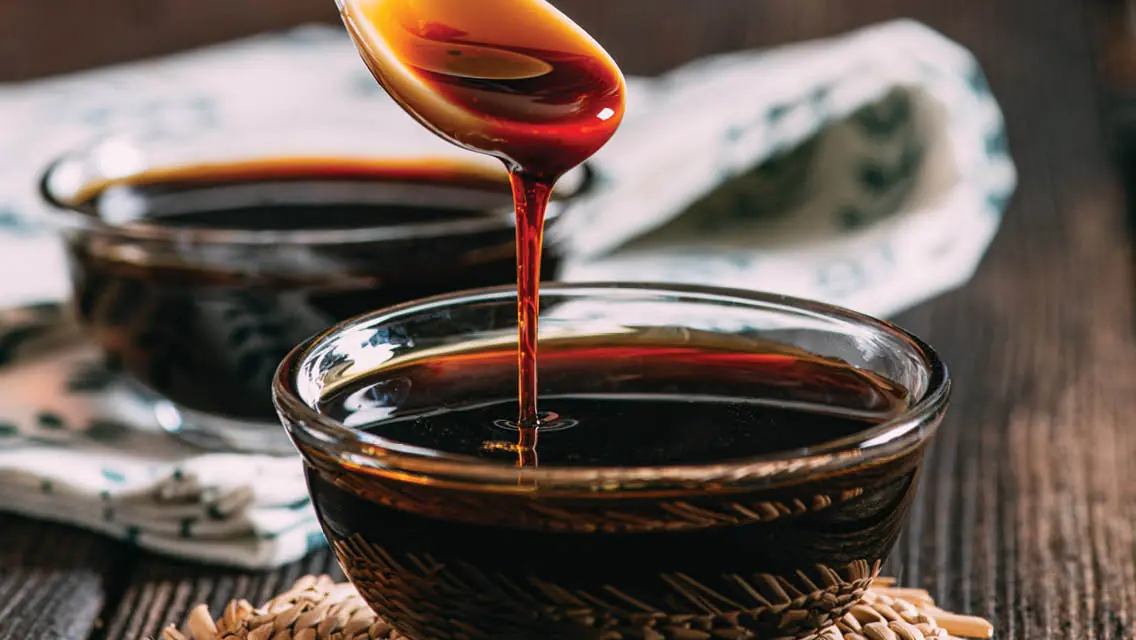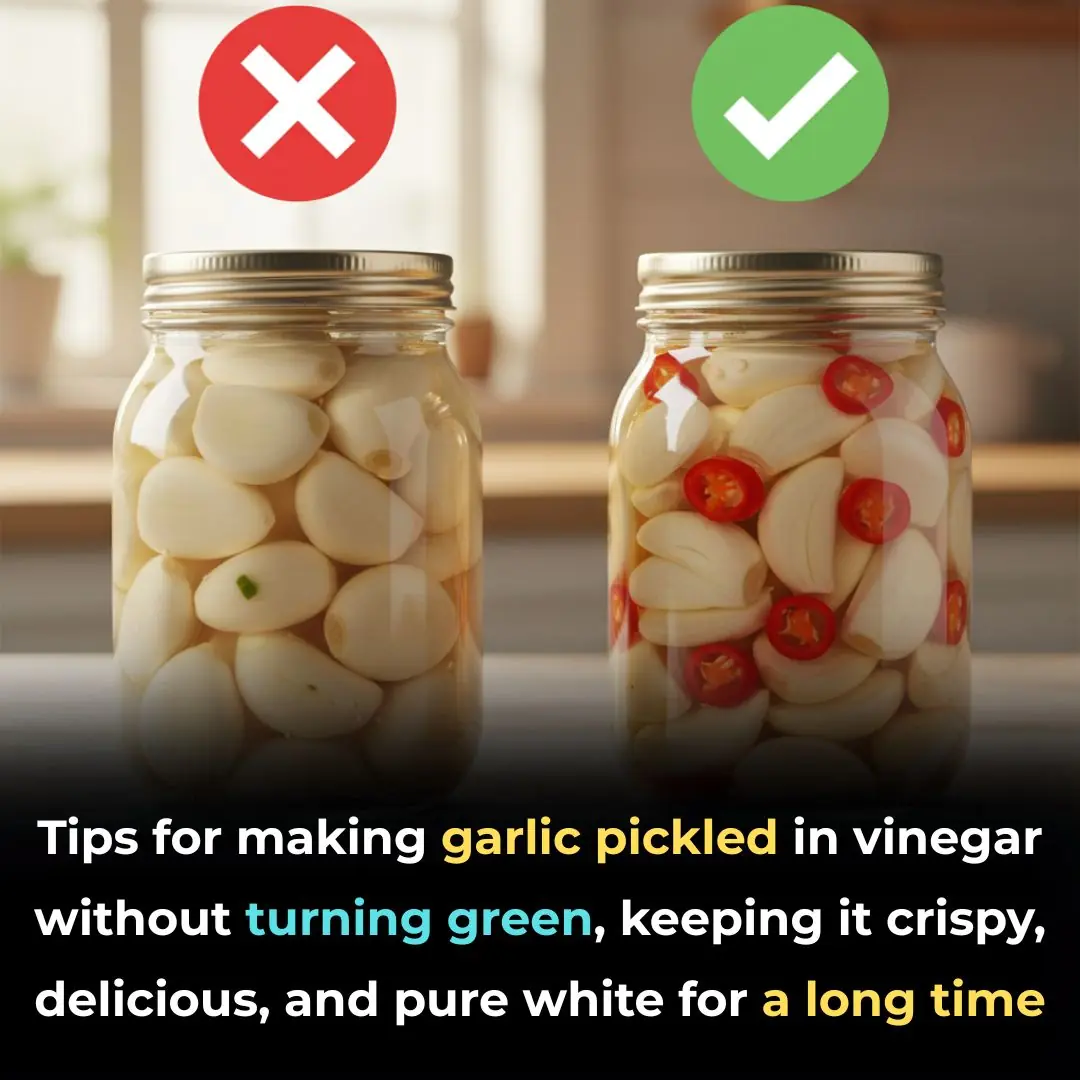
Eat cloves every day, but avoid this common mistake!

Today, we’re going to dive into a common spice—clove—and how some mistakes can turn this beneficial plant into something risky. Cloves have been around for centuries, known for their pain-relieving properties, heart health benefits, and anti-inflammatory effects. However, if not used correctly, cloves can lead to real issues, especially for your liver. Understanding the proper way to use this spice is key to reaping its benefits without any unwanted side effects.
⚠️ The First Mistake: Thinking Numbness is an Allergy
Many people associate cloves with toothaches, as they’re known to help relieve pain. But one big mistake happens when someone tries cloves for the first time. They might chew a whole clove, and after a few moments, their tongue feels numb. The immediate reaction might be, “Oh no, I’m having an allergic reaction!” So, they spit it out, rinse their mouth, and decide never to use cloves again.
But here’s the truth: Cloves contain eugenol, the main active compound in the spice. Eugenol has a numbing effect, which is why your mouth feels temporarily numb when you use it. This effect is similar to what dentists use in numbing agents. It usually lasts 15 to 30 minutes and only affects the area where the clove touched. A real allergic reaction would involve symptoms like swollen lips, a swollen tongue, or hives.
The problem with this misconception is that many people throw away a spice that is inexpensive and miss out on its incredible anti-inflammatory benefits. They may spend money on more expensive remedies when they could have something just as effective right in their kitchen.
⚠️ The Second Mistake: Bad Storage
Before we move on to other mistakes, let’s talk about how to properly store cloves. You could have the best quality cloves in the world, but if you store them improperly, it’s like owning a car without wheels. If cloves are left out in the open air, they can lose up to half of their eugenol within three months. The primary enemies of eugenol are light, heat, and moisture. Light breaks down the active ingredients, heat causes them to disappear, and moisture dilutes them, potentially causing mold growth.
So, how should you store cloves? Keep them in a dark glass jar or a ceramic container with a tight seal. Store them in a cool, dry cupboard, away from the stove or sink—your pantry is a perfect spot. If you buy ground cloves, try to use them within six months. Whole cloves, on the other hand, can last up to two years with proper care.
The silent enemy is ongoing inflammation, which slowly harms our joints, arteries, and organs without us even realizing it. The eugenol in cloves is a powerful fighter against this silent inflammation. But without proper storage, cloves lose their potency and can’t provide the protection they were meant to. A quick way to check if your cloves are still effective is to smell them. Fresh cloves have a sharp, intense smell. If they smell weak or like old wood, they’ve lost their beneficial compounds.
⚠️ The Third Mistake: Too Much of a Good Thing
The third mistake occurs when people think that if a little clove is good, a lot must be better. Cloves are powerful, and the main active ingredient, eugenol, should be respected. The issue typically arises when people chew several cloves or make very strong teas with multiple cloves in one cup. This is when clove can go from being a helpful remedy to something potentially harmful.
The first signs of too much clove are digestive issues: heartburn, persistent nausea, or diarrhea. Your body is trying to expel the excess eugenol, which it can’t process quickly. The real danger, however, is to your liver. This vital organ processes the eugenol you consume. When you take excessive amounts, your liver becomes overloaded, leading to increased liver enzyme levels and, in severe cases, liver damage. The rule of thumb is: less is more. Two cloves a day or two cups of mild tea are sufficient. Anything beyond that puts you at risk.
⚠️ The Fourth Mistake: Mixing with Diabetes Medicine
Cloves have an additional benefit: they can help lower blood sugar. However, this can become problematic if you're taking diabetes medication. Eugenol makes your body more sensitive to insulin, which means it helps your cells absorb sugar more efficiently. This sounds great, but if you're already on medications like metformin, glyburide, or insulin, cloves can amplify their effects. This can cause your blood sugar to drop too low, leading to symptoms like dizziness, confusion, and even fainting.
The bottom line is that while cloves can help with blood sugar control, they can also dangerously lower it if combined with diabetes medication. If you have diabetes or pre-diabetes, it’s essential to talk to your doctor before using cloves regularly. You may need to adjust your medication and monitor your blood sugar more frequently.
⚠️ The Fifth Mistake: Using Cloves as a Cure for Tooth Problems
Dentists often see patients who use cloves to treat tooth pain, and while this is effective for temporary relief, it shouldn’t be a substitute for proper dental care. Cloves, thanks to their eugenol, do indeed numb pain and reduce inflammation. They can provide great temporary relief from toothaches, and dentists often use eugenol-based products after dental procedures.
However, the mistake comes when people use this relief as an excuse not to seek professional treatment. What may start as a simple cavity can progress into a deep infection if left untreated. The numbing effect of cloves masks the pain, but it doesn’t stop the underlying issue, such as bacteria eating away at the tooth. So, remember: cloves are for temporary relief until you can see a dentist, not for long-term treatment.
⚠️ The Sixth Mistake: Misusing Clove Essential Oil
Clove essential oil is one of the most concentrated forms of eugenol, and this is where things can go wrong. Just one drop of clove essential oil is equivalent to chewing 70 cloves. This concentration is far too much for your body to handle in most cases.
The first issue arises when people apply clove essential oil directly to their skin without diluting it. Pure eugenol is too harsh and can cause burns. If you want to use clove oil on your skin, always dilute it with a carrier oil, such as coconut or almond oil. A 1% dilution is safe, which means one drop of clove oil to 10 ml of carrier oil.
And never, under any circumstances, should you ingest clove essential oil. Even a tiny amount can cause severe liver damage. Your liver is flooded with eugenol, and it can lead to liver failure. Essential oils are meant for aromatherapy or skin use, but not for internal consumption.
⚠️ The Seventh Mistake: Ignoring Interactions with Medications
The final mistake to avoid is not considering how cloves interact with medications, especially those with blood-thinning properties. Eugenol in cloves can make your blood flow more easily, which is generally good for circulation. However, when combined with medications like warfarin, aspirin, or clopidogrel, cloves can enhance this effect and increase the risk of bleeding. This is especially important before surgery, as doctors often ask patients to stop blood thinners ahead of time. Failing to mention your use of cloves could lead to complications.
Other natural remedies, like garlic, ginger, cinnamon, and ginkgo biloba, also thin the blood. When combined with cloves, they can create a dangerous, unintended blood-thinning cocktail. Always consult with your healthcare provider if you’re using natural remedies alongside prescribed medications.
Conclusion
Cloves are a powerful spice with amazing benefits, but they come with some risks if not used properly. By avoiding these common mistakes, you can enjoy the many advantages of cloves without facing any negative consequences. Remember, moderation and proper usage are key to making the most of this healing plant.
News in the same category


12 everyday habits that quietly raise your stroke ri:sk

7 Powerful Fruits That May Help Prevent and Fight Cancer

Goodbye Swelling, Weak Muscles, and Joint Pain! 18 Collagen-Rich Foods You MUST Eat for Your Legs and Joints

Scientifically Proven Health Benefits of Avocado and Avocado Seeds

Claim: a juice regimen reportedly cleared can:cer cells in 42 days

The Unexpected Connection Between Dreams and Dementia or Parkinson’s Disease

Heatwave of 41°C Causes Sudden Strokes in Healthy People: Doctors Warn of 7 Early Signs to Watch For

The Silent Disease That Easily Leads to Liver Cancer: Many People Have It but Remain Unaware

Is It Safe to Take a Cold Shower After Exercising in the Summer? What Doctors Say About Who Should Avoid It to Prevent Stroke

7 Things Not to Do Before Taking a Shower to Avoid Stroke – 2 Common Mistakes People Often Make

Bitter Taste In Your Mouth Discover Most Common Cause

Silent Symptoms of Anemia You Should Never Ignore

The Impressive Health Benefits of Guava Fruit and Leaves

Molasses 101: Types, Proven Benefits, Uses, and More

The Psychological Meaning of Leaving Dirty Dishes

Most Widely Used High Blood Pressure Drug May Harm Heart Health, Study Shows

7 warning signs of kidney failure in your feet – #5 is easy to miss!

Shoulder Pain from Sleeping: Causes, Solutions and More
News Post

Every washing machine has this small part; open it once a month, and your clothes will smell fresh while your machine stays clean and lasts longer.

Don't throw away orange peels; use this method for multiple useful purposes that every household needs. Don't waste them!

Here are 3 simple methods to make sure there are no mice in your house.

What really happens to your kidneys when you drink coconut water

12 everyday habits that quietly raise your stroke ri:sk

Fern Leaves Benefits and Uses: A Hidden Natural Remedy for Health and Home

The Best Tea for Mornings and After Dinner: A Powerful Blend for Health

Soak Garlic in Vinegar This Way to Keep It White, Crunchy, and Delicious

Eat These 5 Fruits to Avoid Magnesium Deficiency, Keep Your Heart Healthy and Your Bones Strong 👇👇👇

Save Millions in Electricity Bills Every Year Just by Cleaning This Hidden Spot in Your Rice Cooker

7 Powerful Fruits That May Help Prevent and Fight Cancer

Goodbye Swelling, Weak Muscles, and Joint Pain! 18 Collagen-Rich Foods You MUST Eat for Your Legs and Joints

Scientifically Proven Health Benefits of Avocado and Avocado Seeds

Claim: a juice regimen reportedly cleared can:cer cells in 42 days

Why a Man Turns His Back On You When He Sleeps

Why Public Bathroom Doors Don’t Reach the Floor?

The Unexpected Connection Between Dreams and Dementia or Parkinson’s Disease

Apple fans divided as key component is axed from new AirPods Pro 3
